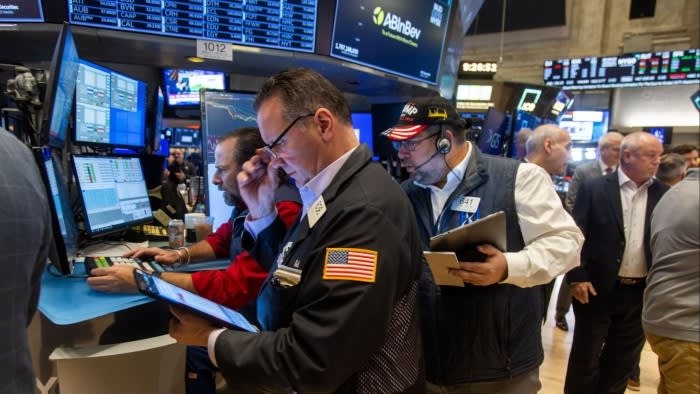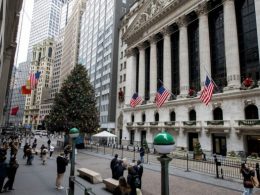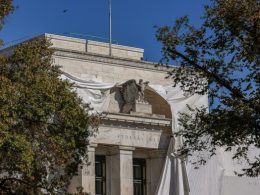Unlock the White House Watch newsletter for free
Your guide to what the 2024 US election means for Washington and the world
Wall Street investors have voted with their wallets — and the outcome, as in the election itself, is resounding. No wonder: the return of Republican Donald Trump to the White House, plus a compliant Senate, should be an enormous giveaway for financial firms. They thrive on unstifled market forces, volatility and low taxes. This bonanza could leave them richer now, and weaker later.
Shares in JPMorgan, Goldman Sachs and their peers jumped double digits in early trading, something that hasn’t happened since the depths of the Covid-19 pandemic. Taxes will almost certainly fall. Onerous capital regulation, and curbs on payment fees and discriminatory lending, are probably kaput. The S&P 500’s constituent banks — 94 in total — gained $160bn in market capitalisation by mid-morning.
Loan growth is likely to pick up, as uncertainty over who is in charge recedes. Lower interest rates — if Trump engineers them as promised, despite his inflationary policies — would pressure net interest margins. But they would also drive wealthy customers to seek out higher-returning “alternative” assets of the kind Goldman and its peers love to peddle. The less wealthy will take refuge in the stock market, happily for Morgan Stanley, owner of brokerage E*Trade.
Deals will return too, as hawkish regulators are declawed. This year has so far witnessed 60 per cent of significant merger investigations end with the deal being abandoned, according to law firm Dechert, the highest on record. Advising on deals and capital raisings made up 5 per cent of JPMorgan’s revenue in the latest-reported quarter. In the same period of 2021, when interest rates were near zero, they accounted for 11 per cent.
After that, though, things get murky. Volatility is good; chaos is not. Trump’s plans to introduce widespread tariffs could shield domestic manufacturers from competition. But Wall Street executives are globalists, and get rich when capital flows across borders. JPMorgan boss Jamie Dimon describes himself as a “red-blooded, patriotic” capitalist. His bank also makes one-third of its revenue outside of North America.
Bank valuations depend, not just on having a free hand in the markets, but on customers who are prosperous and creditworthy. That was already at risk. About 7 per cent of credit card loans became seriously delinquent between April and July, according to New York Fed data, the highest level since 2011. Trump’s plans to gut public spending — with the help of Tesla boss Elon Musk — could have damaging consequences for households who are already struggling.

The scene is set for Wall Street to have great fun in the early days of a Trump presidency — followed by a less certain future thereafter. JPMorgan, Bank of America and their smaller peers rule the world because they are also the most highly regulated, and their customers are the world’s richest. Both of those advantages will now be put to the test.
Source link









